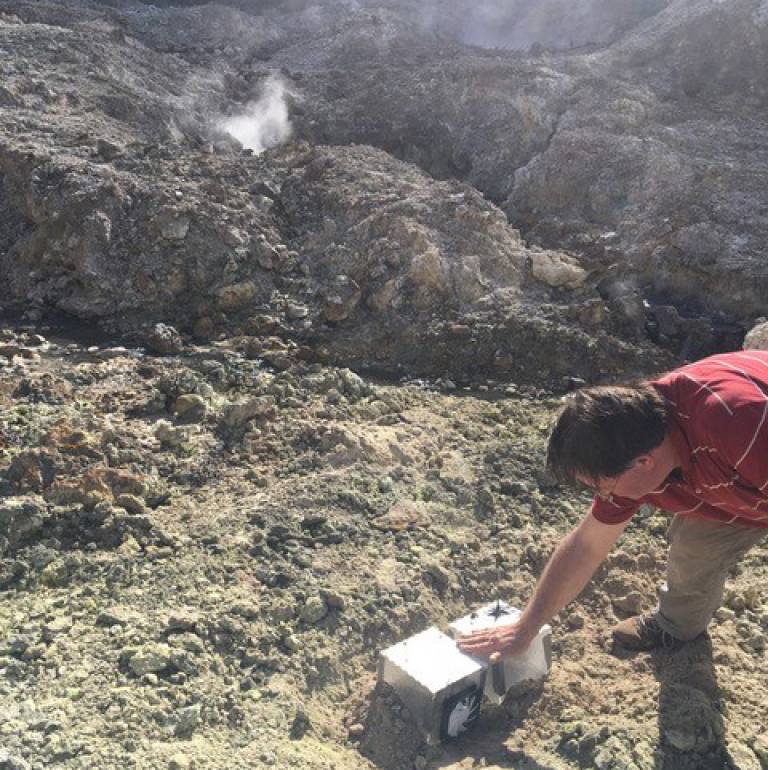News from the UCL Hazard Centre
18 March 2018
Developing Low-Cost CO2 Sensors for Monitoring Degassing Volcanoes. Geochemical surveillance is essential for reducing risk at actively degassing volcanoes.Variations in concentration and composition

Geochemical surveillance is essential for reducing risk at actively degassing volcanoes. Variations in concentration and compositions of gases can be indicators of magma ascent or changes in hydrothermal system dynamics, so monitoring is important for the timely detection of unrest. The gases themselves can also present a major health hazard, with impacts ranging from aggravation of respiratory conditions and skin inflammation, to asphyxiation and death. A key challenge for monitoring is that degassing can occur over large areas and concentrations can change rapidly. In an ideal scenario, networks of instruments capable of providing real-time information would be installed across the degassing area, but conventional methods are usually cost-prohibitive.
 Close
Close

